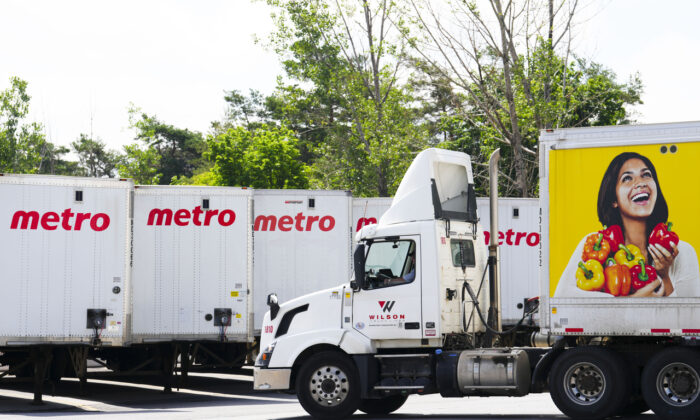The impact of the federal carbon tax, or fuel charge, on the wallets of Canadians has been a topic of heated debate among politicians in Ottawa.
The new study, led by researchers from Dalhousie University, involved a review of existing literature on the effects of carbon pricing policies on the agri-food sector and food prices.
While acknowledging that carbon taxes “decrease disposable income and increase food prices,” the study also points out the lack of extensive research on this subject in Canada.
“To be honest, what we found is that there is still a lot we don’t know about it,” said Sylvain Charlebois, the lead author of the study, in an interview with The Epoch Times.
“Therefore, we can only conclude that the Trudeau government implemented this policy without a full understanding of how it would impact the affordability of food in Canada,” added Charlebois, who serves as the senior director of the Agri-Food Analytics Lab at Dalhousie.
The Epoch Times reached out to Environment Canada for comment but did not receive an immediate response.
Charlebois emphasized that the carbon tax is a potent tool that can influence the market, but the lack of measurement of its impact could harm the competitiveness of the entire agri-food industry.
“We hypothesize that this may indeed be the case, that we have implemented this policy without fully understanding how it has compromised the ability of our agri-food sector to compete, not just internationally but also domestically,” Charlebois stated.
The study highlights that while carbon pricing schemes are essential for reducing greenhouse gas emissions, they can also raise food prices and negatively affect low-income households.
Researchers point out that the potential impacts of carbon pricing on food production include higher fuel costs for operating farm machinery or transporting goods, as well as increased expenses for producing fertilizers and pesticides.
“Future research and policy adjustments should focus on optimizing carbon pricing mechanisms to effectively reduce emissions while ensuring food security and affordability for all income levels,” the study concludes.
Charlebois mentioned that a follow-up study examining the effects of the carbon tax on food prices in more depth will be published soon.
The issue of the federal carbon tax, or fuel charge, has been a major point of contention between the Liberal government and the Conservative Opposition.
While Liberals argue that the carbon tax is revenue-neutral and that eight out of 10 Canadian households receive more in carbon rebates than they pay in carbon tax, Conservatives contend that the carbon tax is negatively impacting the Canadian economy and increasing costs.
The Parliamentary Budget Office released its updated analysis on the carbon tax in October. It indicates that the average household will see a net benefit from the carbon tax and associated rebate in 2030-2031 when considering only fiscal impacts. However, when factoring in both fiscal and economic effects, the average household is expected to experience a net loss in 2030-2031.
“Since the fuel charge reduces employment and investment income, which represent a larger portion of total income for higher-income households, their net cost is higher,” stated the budget office.
Please rephrase this sentence.
Source link








